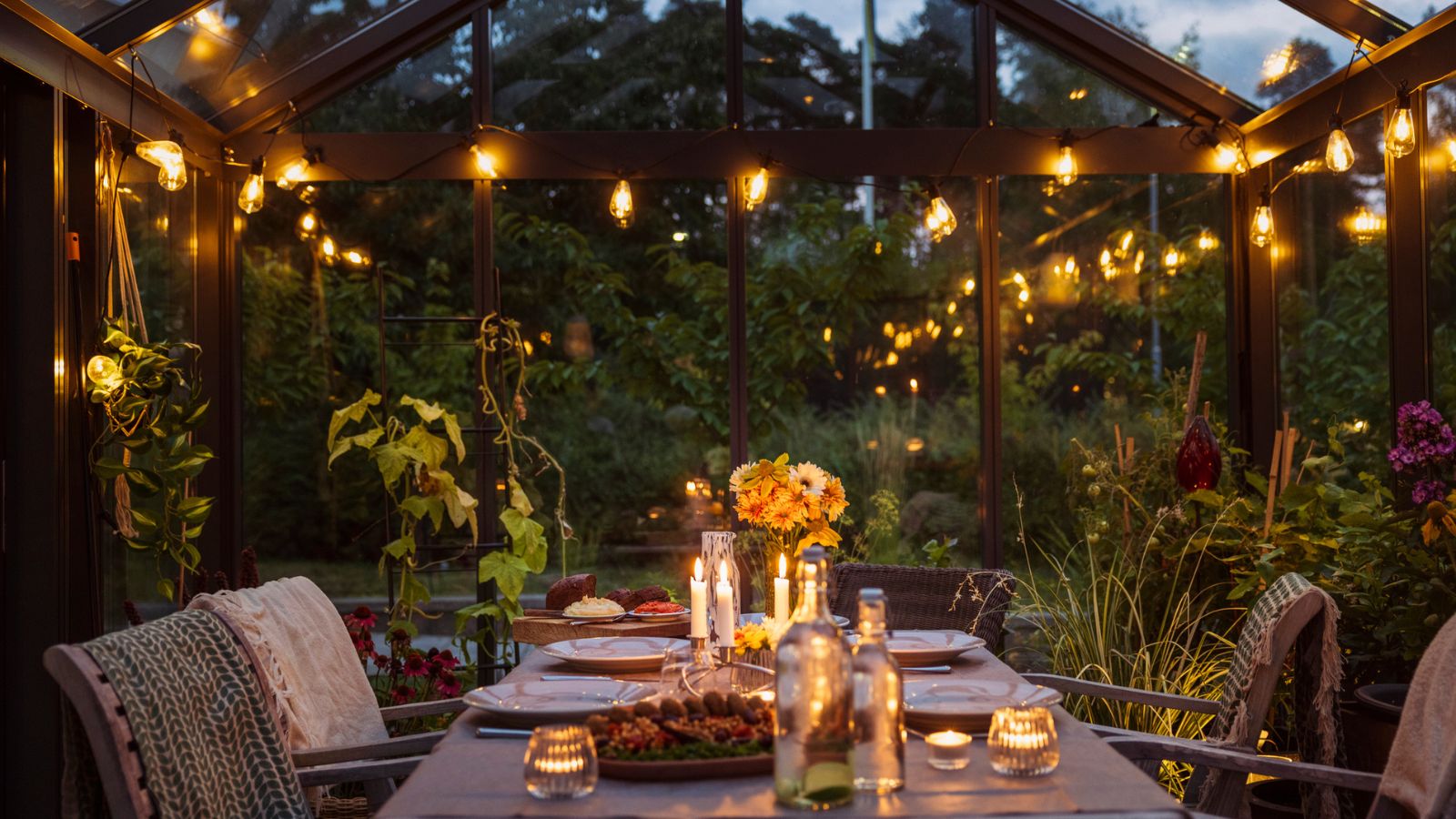
Solar lights are an increasingly popular way to light a garden. As technology improves, they get brighter and cheaper, providing beautiful, practical light that's free to run.
However, they also have a reputation for being a little one-note. Path solar lights sit in boring old flowerbeds; string lights are strung over the patio. It can be hard to find inventive spots to place your solar lights.
However, you have other options. I spoke to a solar expert about the more unusual and surprising places you can use solar lights to bring interest to your yard this fall.
1. Under a porch
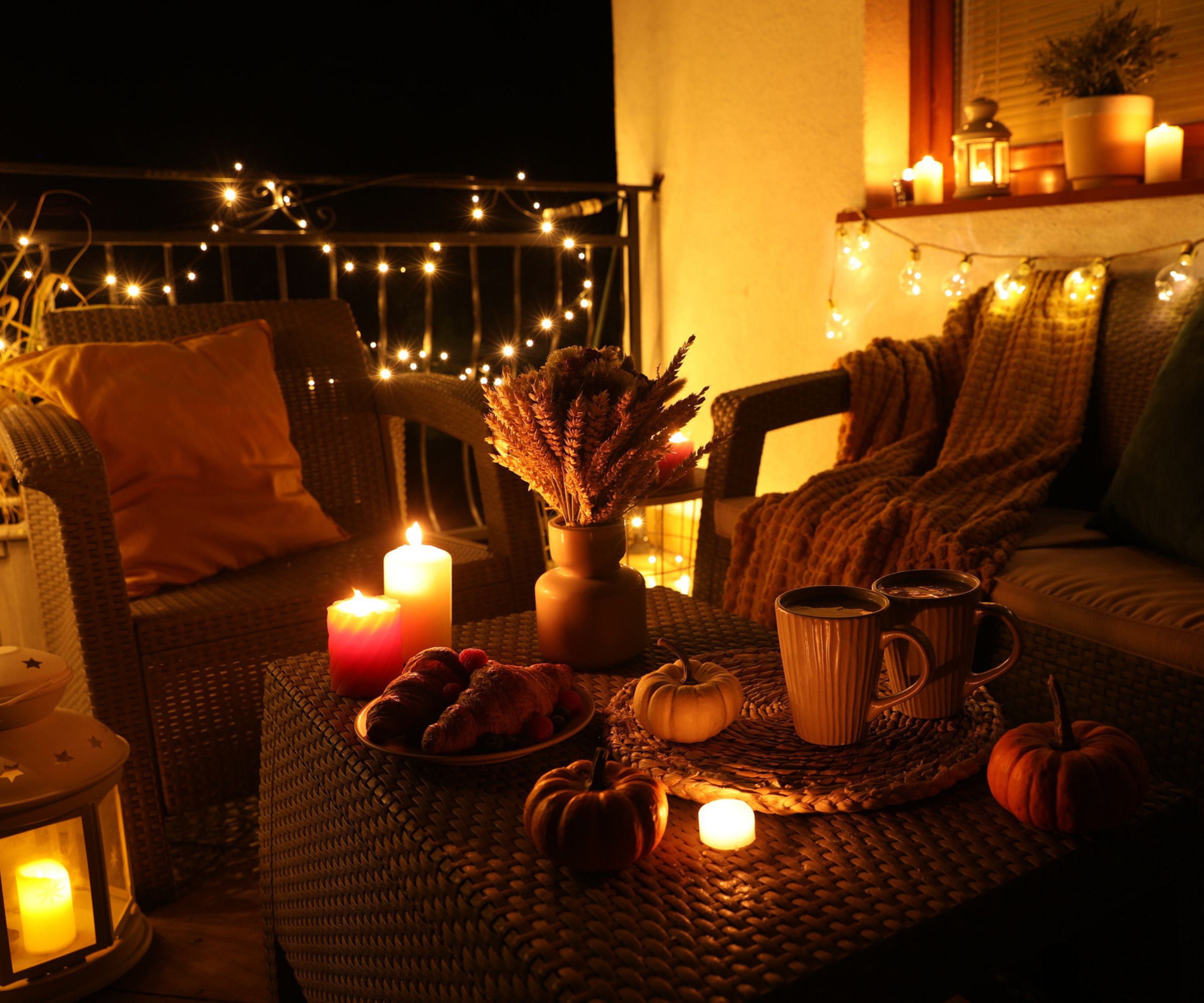
One of the best places to use solar lights is under a porch. Many people think you can't use solar lights on a porch because the panel is in the shade, but you just have to be smart about where you place it.
You can string festoon or solar lights along a porch rail, the wall of your house, or along the porch ceiling - just place the solar light off the porch in a spot that gets full sun.
Solar expert Andrei Marveaux says 'Position the solar panel in a sunny location and run the light under your porch. That way, you'll get excellent lighting without needing to rewire anything.'
2. In a greenhouse
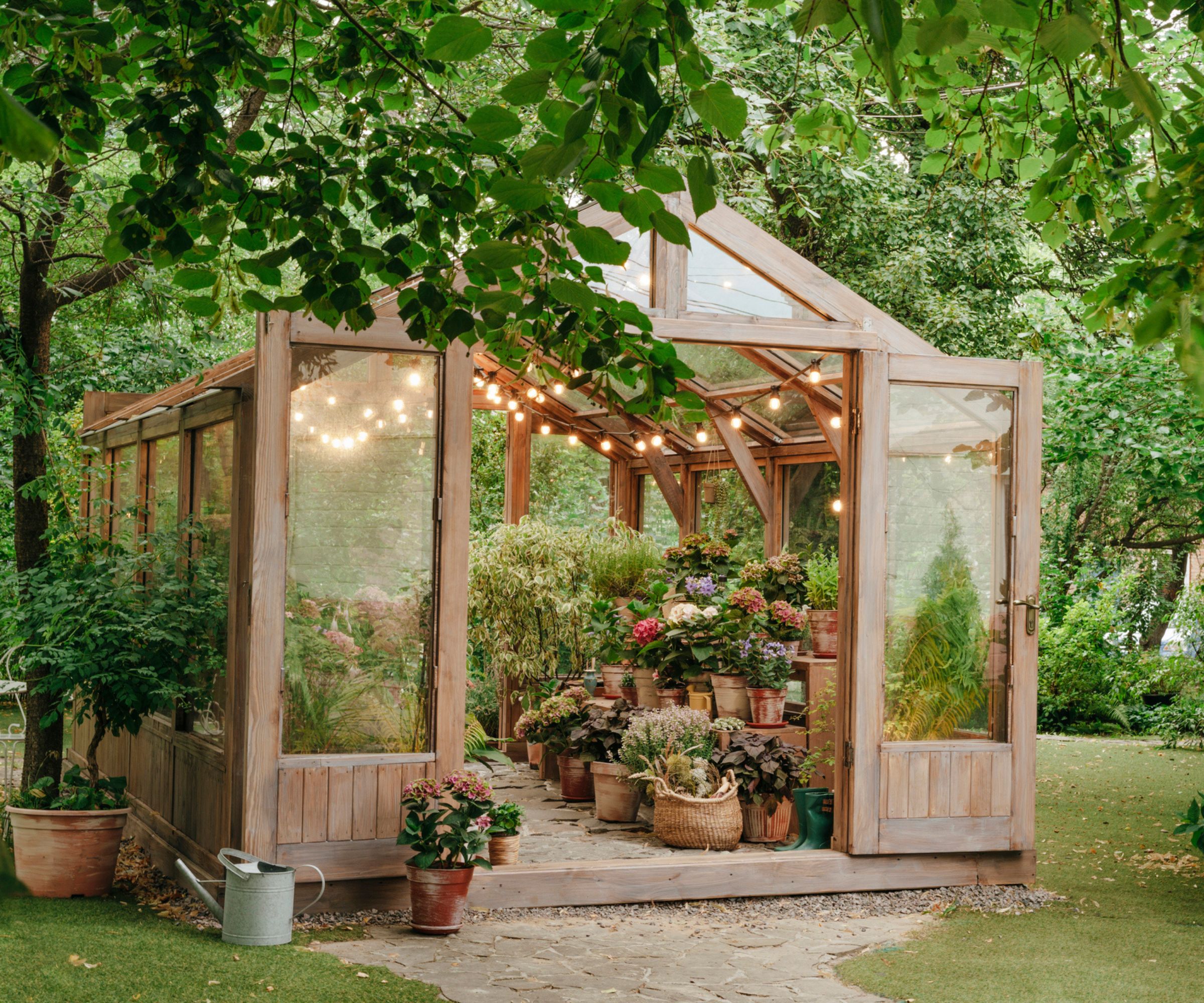
Greenhouses are underutilized in garden design. They can look fantastic with a little styling, but many of us just use them as a tool for growing our plants.
However, some well-placed solar lights can make your greenhouse look like a design feature in its own right. You can see your plants thriving long after the sun sets, expanding the color palette in your yard as the seasons change.
Greenhouses are perfect for solar lights because they're transparent. Unlike a porch, you can keep the solar panel inside the greenhouse. It will get the same amount of light as it would outside, and solar lights in your greenhouse will last longer because they're protected from the wind and rain.
Solar expert Andrei says 'Solar lights are pretty versatile as long as their solar panels are provided adequate exposure to sunlight.' Greenhouses get plenty of sun, so they're perfect for solar lights.
I've tested these lights for a couple of years and they've held up through many seasons of snow and sun.
Brightech's string lights are beloved by reviewers everywhere. Thousands of 5-star reviews claim they can stand up to years of harsh weather.
This three-pack of lights is great value, but the best feature is the replaceable batteries. Battery faults are the most common reason solar lights break, so the replaceable batteries in this model should keep these lights going for years.
3. Under a patio umbrella
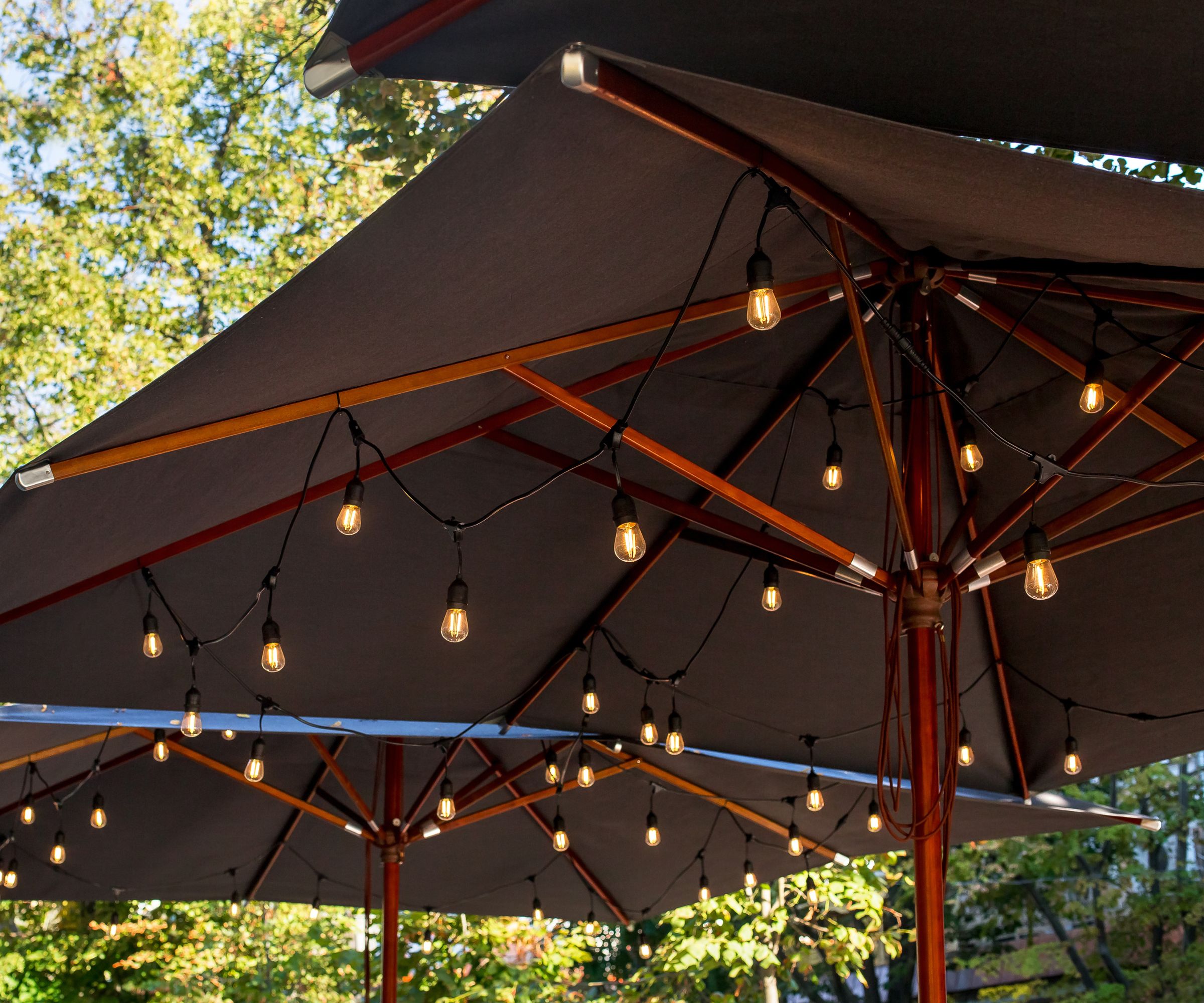
Patio umbrellas are a great spot for solar lights. In fact, solar expert Andrei Marveaux says 'Patio umbrellas are perfect for solar lights.'
Just as with porches, people tend not to use solar lights in patio umbrellas, because they think the shade of the umbrella will stop the solar lights from working. As long as the panel is in full sun, they'll work fine.
The most common way to use solar lights in a patio umbrella is to string them from the ribs in the umbrella. It's an easy way to achieve relaxed but practical lighting, extending the use of your patio long after the sun sets.
However, you don't have to use reliable old solar string lights. There's a huge range of different styles of solar lights for patio umbrellas. Andrei says 'Most solar-powered umbrella lights are designed to clip into the umbrella ribs, thereby providing a warm, energy-efficient lighting outdoor space.' There are lots of other styles, too, and some patio umbrellas come with these lights built-in.
These lights are specifically designed for a patio umbrella, radiation out from the top of the umbrella along the ribs for practical lighting. Best of all, they're remote controlled, with loots of different patterns and settings.
For simple, practical lighting, try these clip on lights. They're motion-detecting, so they'll only switch on when you actually need them.
This tilting patio umbrella has solar lights built in - they run from a solar panel hidden in the top of the umbrella.
4. Under trees and shade
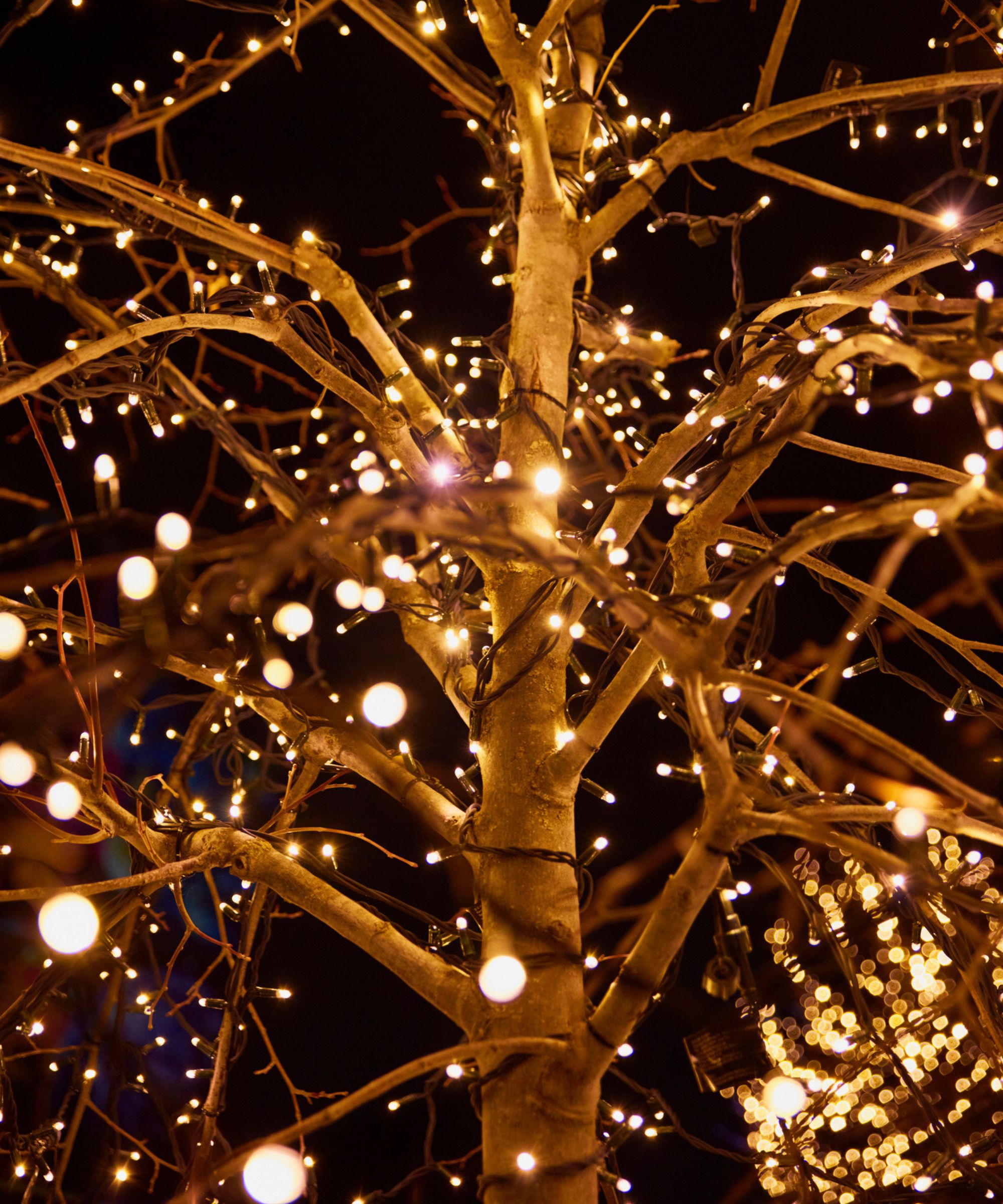
Most people keep solar lights out of shady areas because they worry that the shade will stop the solar lights from working. This can be frustrating - the whole point of solar lights is to brighten a space, so they can seem a little pointless if they can't be used in the darker areas of the garden such as in or under trees.
However, you can use solar lights in these shady spots - you just need to find a sunspot for the panel. As long as the panel is in sunlight, it doesn't matter where the lights are - they'll still work.
Andrei says 'Position the solar panel in a sunny spot and run a cable to the light itself. That way, even shaded areas can benefit from solar lighting.'
Many solar light manufacturers also sell solar panel extension cables like this on Amazon. These mean that you can use a sunspot far away from your lights to power your solar lights. This hugely expands where you can use solar string lights - it means you can use them under trees or in the shadow of buildings.
5. Indoors
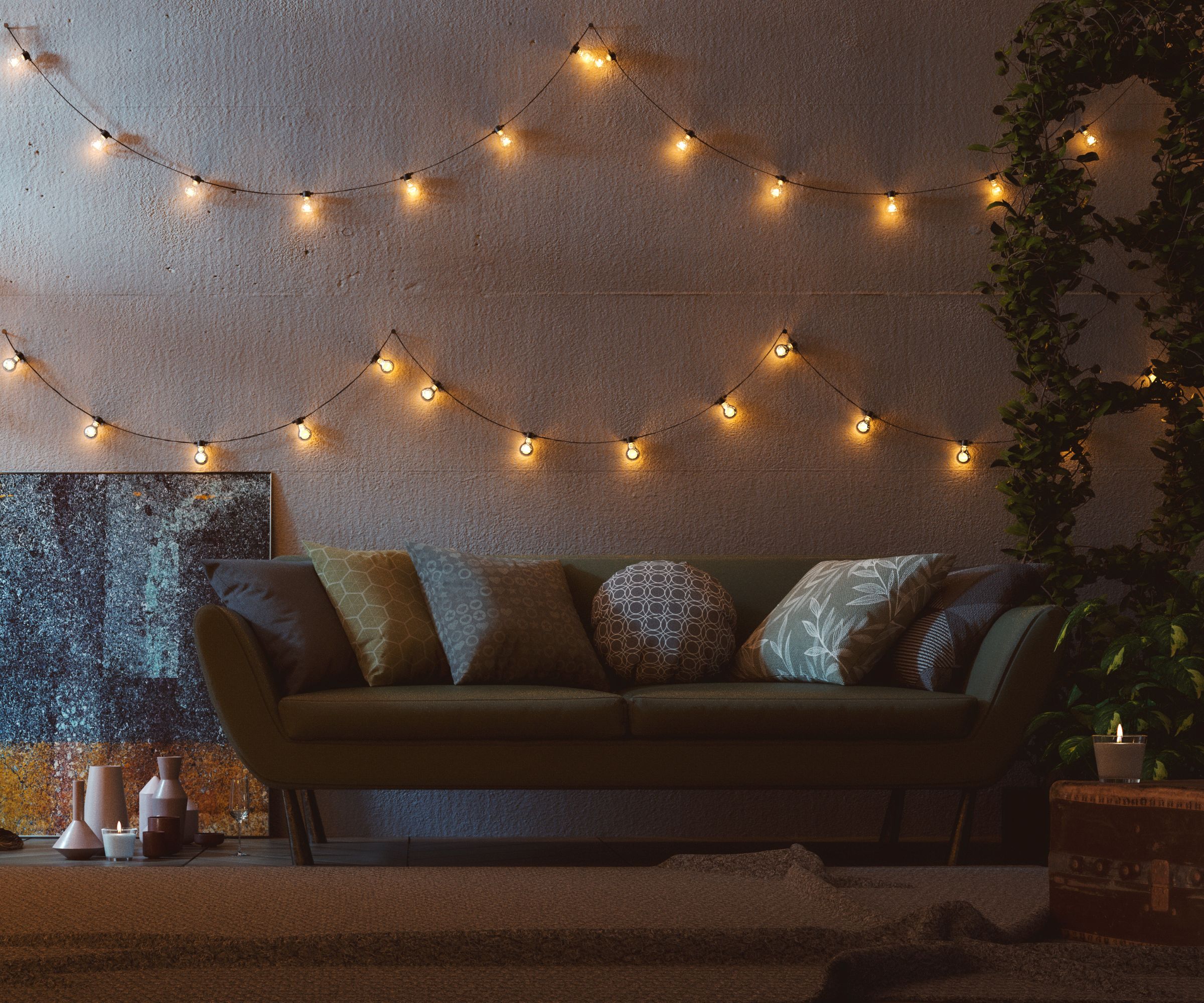
This won't work for every home, and you likely need a bright, south-facing room. However, you can use solar lights indoors with a little planning.
A solar panel on a windowsill will receive a lot of sunlight, especially if it's getting full sun. You can hide the panel behind a picture frame or other decor and use that to run your lights, cutting down on electricity bills. Just as in a greenhouse, the solar lights are out of the elements, so they're likely to last much longer than they would in a garden.
However, before you replace all your interior lights with solar lights, bear in mind that this won't work in every room. Andrei says that 'Solar lights only work if the area receives direct sunlight. The truth is that solar lights need full and direct sunshine to charge. Therefore, they can't be considered for full-time indoor use.'
FAQs
Are solar lights safe to use indoors?
Solar lights are no more dangerous than any other light source indoors. They won't work in every room of your home, but they are not dangerous.
Solar panels aren't just good for running lights. It's also worth considering using a solar fountain in your yard to provide an inexpensive water feature and clean, safe water for local bird populations.







